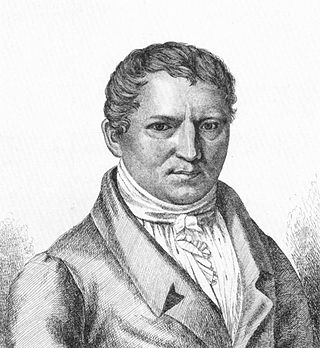
Karl Friedrich Eichhorn was a German jurist.
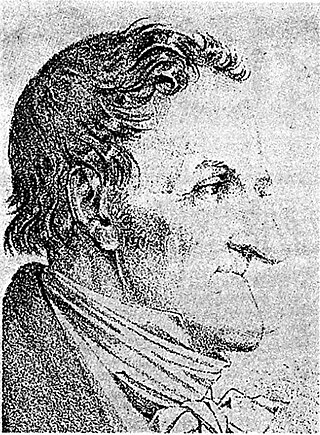
Count Georg Ludwig Friedrich Wilhelm zu Münster was a German paleontologist.

Gustav Friedrich Wilhelm Großmann was a German actor, writer, and stage director. He wrote the text of the famous operatic Schauspiel mit Gesang Adelheit von Veltheim, with music by Christian Gottlob Neefe.

The Province of Westphalia was a province of the Kingdom of Prussia and the Free State of Prussia from 1815 to 1946. In turn, Prussia was the largest component state of the German Empire from 1871 to 1918, of the Weimar Republic and from 1918 to 1933, and of Nazi Germany from 1933 until 1945.

Wittelsbach-Hapsburg aristocrat Ernest of Bavaria was Prince-Elector-Archbishop of the Archbishopric of Cologne and, as such, Archchancellor of the Holy Roman Empire and Duke of Westphalia, from 1583 to 1612 as successor of the expelled Archbishop Gebhard Truchsess von Waldburg.
Bernhard Josef Hilgers was a German Catholic church historian born in Dreiborn in der Eifel.
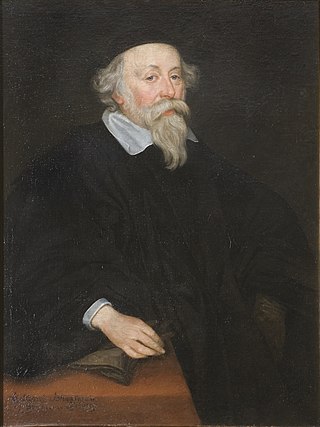
John Casimir, Count Palatine of Zweibrücken-Kleeburg was the son of John I, Count Palatine of Zweibrücken and his wife, Duchess Magdalene of Jülich-Cleves-Berg. He was married to Catherine of Sweden and was the founder of a branch of Wittelsbach Counts Palatine often called the Swedish line, because it gave rise to three subsequent kings of Sweden, but more commonly known as the Kleeburg line.
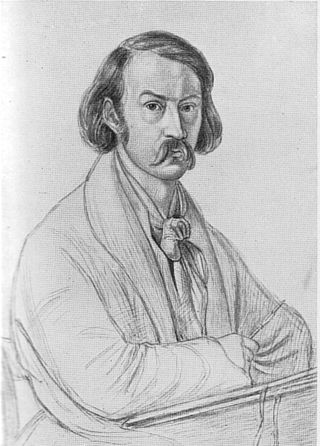
Friedrich Preller the Elder was a German landscape painter and etcher. From 1832 he was a professor at the Fürstlichen freien Zeichenschule in Weimar. He was the father of the artist Friedrich Preller the Younger.
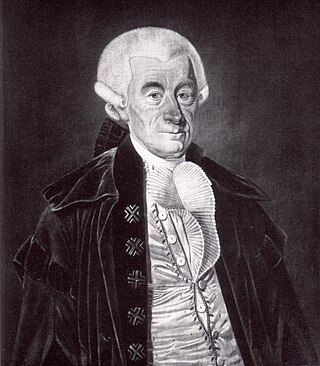
Johann Stephan Pütter was a German law lecturer and publicist. He was professor of law at the university of Göttingen from 1746 until his death. He exerted great influence on the law institutions of his time. His principal work is Historische Entwicklung der heutigen Staatsverfassung des Deutschen Reichs.
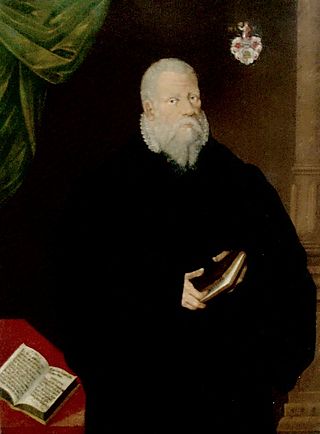
Ludwig Helmbold, also spelled Ludwig Heimbold, was a poet of Lutheran hymns. He is probably best known for his hymn "Nun laßt uns Gott dem Herren", of which J. S. Bach used the fifth stanza for his cantata O heilges Geist- und Wasserbad, BWV 165; Bach also used his words in BWV 73, 79 and 186a.

Robert Pferdmenges was a German banker and CDU politician. He was a member of the Bundestag from 1950 to 1962 and a close friend to Konrad Adenauer.
Ernst Brandi was a German mining engineer, industrial manager and chairman of the Ruhrbergbau. He participated in the Secret Meeting of 20 February 1933 between Hitler and 20 to 25 industrialists aimed at financing the election campaign of the Nazi Party.
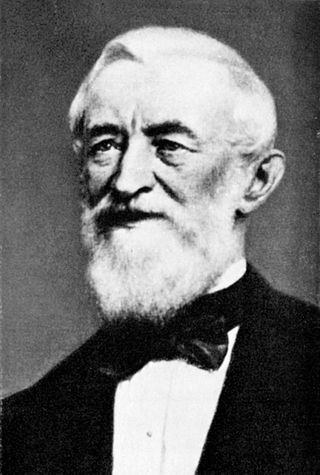
Hermann Krupp was an Austrian entrepreneur, founder of the Austrian branch of the Krupp family.
Helmuth Osthoff was a German musicologist and composer. Much of his career was spent at Frankfurt University, prior to which he held posts at Halle University and Berlin University. He wrote the first major biography on the composer Josquin des Prez, published as a two volume monograph in 1962 and 1965
Johannes Kunisch was a German historian. He held chairs of early modern history at the Goethe University Frankfurt. (1972-1976) and the University of Cologne (1976–2002). Through his publications Kunisch became one of the leading German early modern historians. His biography Frederick the Great, published in 2004 and widely acclaimed, gave lasting impulses to Prussian research.
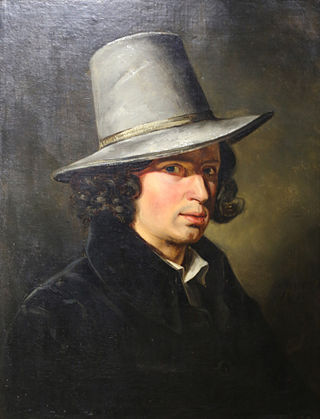
Simon Meister was a German painter.
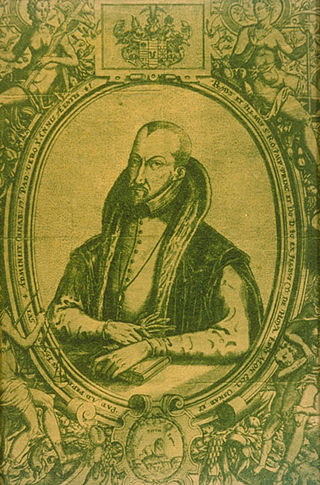
Johann IV of Osnabrück was a German nobleman and prince-bishop. From his father Johann VII's death in 1535 onwards he was known as Count (Graf) Johann VIII von Hoya zu Stolzenau. From 1553 he was Prince-Bishop of Osnabrück, then from 1566 Prince-Bishop of Münster and finally from 1568 administrator of the Bishopric of Paderborn.
Peter Klöckner was a German businessman and industrialist.

Daniel Preissler was a German painter, originating from Bohemia.

Cothenius Medal awardees, 1864–1953 is a list of Cothenius Medal awardees for the period between 1864 and 1953.















